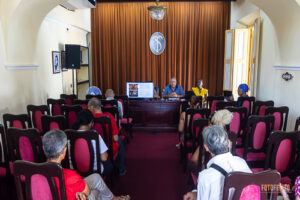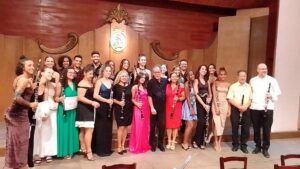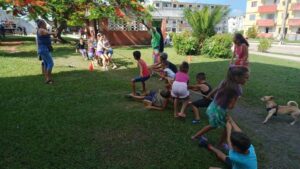Rafael María de Mendive: a master of masters.
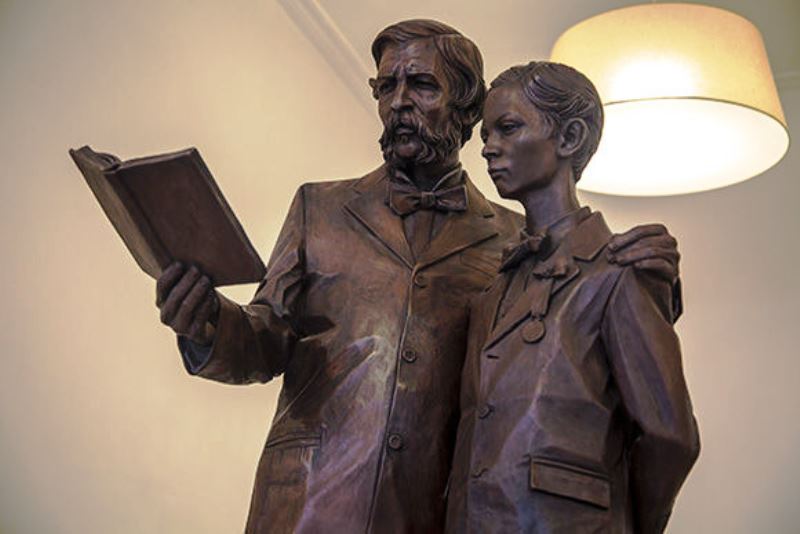
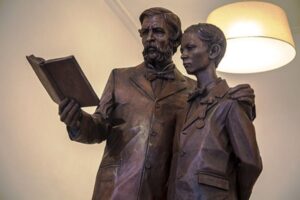
The master and his disciple, a work by José Villa Soberón. Photo: Irene Pérez/ Cubadebate.
Good teachers are never forgotten. Even when you think you are walking alone on the path you have learnt, you go back to those teachings, you make their phrases your own and then you find yourself repeating even the same gestures.
Something similar must have happened to José Martí with his teacher, because Rafael María de Mendive knew how to transmit to him essential ideas such as love for freedom, justice, decorum and concern for the humble; ideas that would later become the leitmotiv of Martí’s preaching.
That boundless love for poetry also admired him; and courage, the same courage that made Mendive host patriotic meetings in his house, even though these later led him to suffer five months in prison after the events of the Villanueva Theater. His collaborations with important international publications and his determination to continue encouraging the separatist cause even from exile, refer us to the obligatory parallelism between the two lives.
From Spain to New York and from there to Cuba as soon as the Peace of the Zanjón was signed (translated into longing for the beloved homeland), and the other return, always to teaching, makes us think of a Rafael María de Mendive, like Martí, faithful to his principles and hobbies. Right there, in front of a school, the Gonzaga, in Cardenas, the illustrious teacher fell ill in 1886 and died on November 24th, after being transferred to Havana.
Later, on July 1st, 1891, José Martí would write a portrait of him in El Porvenir of New York: «I prefer to remember him, alone, in the long walks of the hanging, when the house was silent, the light of the night and the noise of the leaves made his verse; or when, speaking of those who fell on the Cuban scaffold, he would rise angrily from his armchair and his beard would tremble».
Mendive had left an imprint marked by his collaborations with the newspaper Crónica de Ultramar (Paris), Aguinaldo Habanero (1865), Correo de la Tarde, Diario de La Habana, among many others. He had also published translations, directed the Diario de Matanzas (1878-1879) and had unpublished dramas, sometimes under pseudonyms such as Tristán del Páramo or Armand Flevié.
But, although some of his verses were translated into French and others appeared in the anthology Poetas españoles y americanos del siglo XIX, by Andrés Avelino de Orihuela, the prolix work of the professor did not become as well known as that of his protégé and disciple. However, behind Marti’s life and work, always burns the light of Rafael María de Mendive, a master of masters.
Written by Jeidi Suárez


